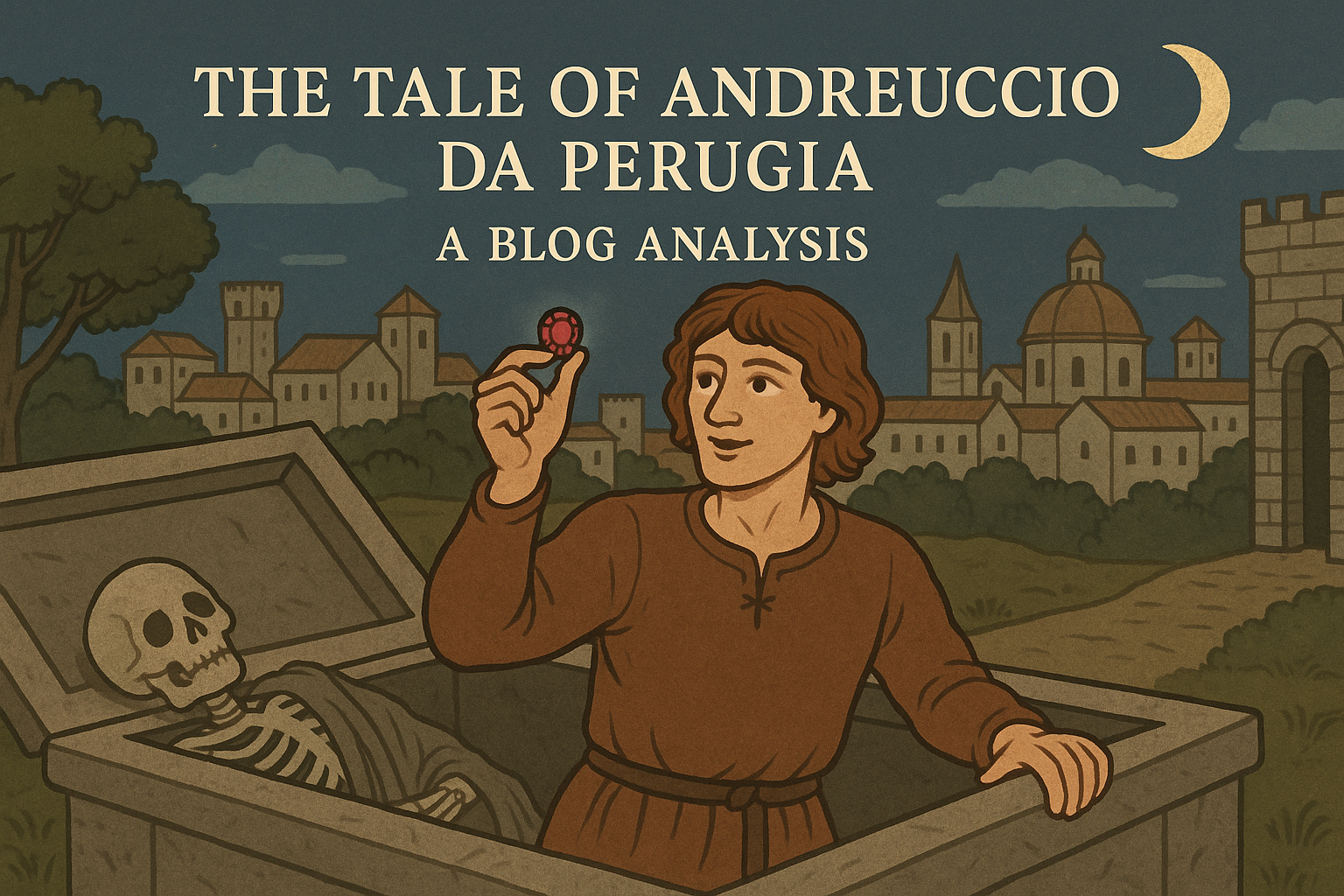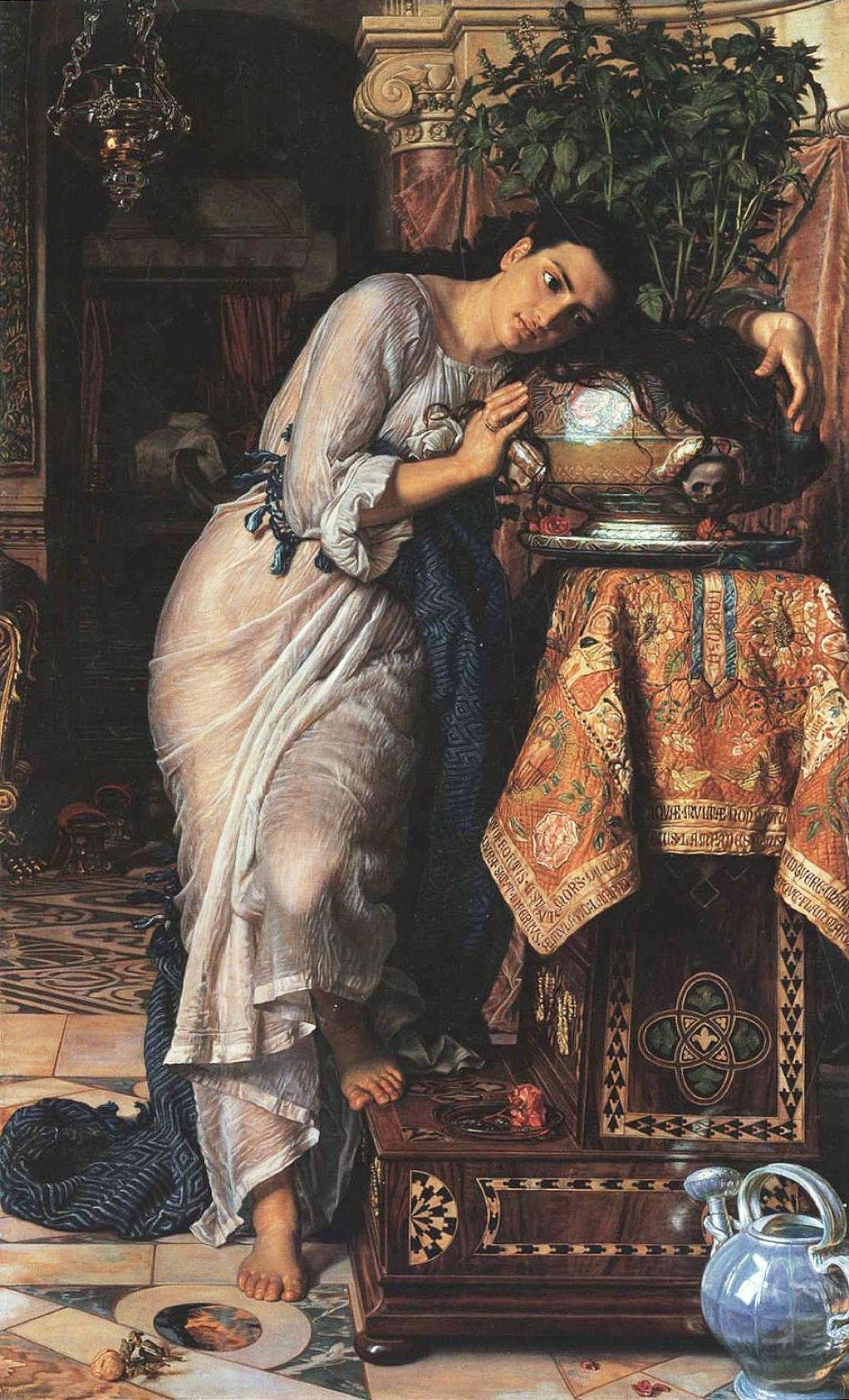Alatiel’s Silence: Survival in a World That Never Asked

Introduction:
In The Decameron by Giovanni Boccaccio, Day 2, Story 7 tells the story of Alatiel, a princess whose beauty becomes both her greatest asset and her deepest curse. Trapped in a cycle of objectification and silence, Alatiel is passed from man to man after a shipwreck derails her royal engagement. Yet, in the end, she reclaims her place in society through a lie, one that upholds the illusion of purity the world demands from women. This tale highlights the harsh reality many still face today: that survival often means silence, that strength often wears the mask of composure, and that women are still praised for the image they project rather than the pain they endure.
Summary:
Alatiel, the beautiful daughter of the Sultan of Babylon, is sent to marry the King of Algarve. On her journey, her ship wrecks, and she is left stranded. Over the next four years, she is taken in by eight different men across various regions, some fall in love with her, others possess her, but all reduce her to her beauty. She learns to endure, remain quiet, and adapt, despite the trauma she carries. Eventually, she is rescued by a servant of her father. Upon returning home, Alatiel invents a story that she had been in a monastery the entire time, untouched and chaste. Her fabricated tale is accepted, and she is once again praised as a worthy bride.
Analysis:
The central theme of Alatiel’s tale is survival through silence. Boccaccio draws attention to the cruel societal expectation that women should remain untouched and unbroken, regardless of the suffering they endure. Rather than revealing her truth, Alatiel crafts a lie to secure peace and safety highlighting the unfortunate truth that for many women, dignity is often found not in honesty, but in how well they can maintain an illusion.
Alatiel is the focal point of the story, but what’s most telling is how passive she appears to others while actively surviving behind the scenes. She adapts to each new situation, learns new languages, and changes her identity multiple times to protect herself. The men ranging from kings to merchants control her movements, but they are largely unaware of her emotional and psychological reality. Her decision to lie in the end is not a betrayal of virtue, but a reclaiming of agency in a world that offered her none.
Boccaccio uses irony masterfully. The most painful irony lies in Alatiel being celebrated for her virginity when, in truth, she has survived repeated violations. This contrast between reality and appearance is both a literary device and a societal critique. Symbolism also plays a strong role: the sea serves as a metaphor for chaos, transformation, and rebirth. Each time Alatiel crosses the water, she is forced into a new version of herself. Even her multiple names throughout the tale symbolize the erasure and reshaping of her identity, mirroring the way society molds women into what it finds most convenient.
This story reflects 14th-century values, where a woman’s worth was measured by her chastity, especially among the elite. Purity was prized over truth, and appearance mattered more than reality. Unfortunately, these expectations have echoes in our world today. The pressure to seem “okay,” to appear untouched by pain still lingers, whether in relationships, on social media, or within family dynamics. I saw my own experiences in Alatiel’s silence: times when I had to hide my feelings, smile through pain, or let people believe I was fine, just to keep the peace or avoid judgment.
Personal Response:
This story stayed with me long after I read it. Alatiel’s silence, how she endured, adapted, and ultimately lied to survive felt deeply familiar. I’ve had my own moments of pretending, of hiding how much something hurt just to be seen as "strong" or "put together." Like Alatiel, I’ve chosen peace over honesty, not because I wanted to deceive anyone, but because I just wanted to stop fighting. Her quiet strength, her resilience in the face of endless objectification, reminded me of how much women carry in silence. And how, sometimes, just surviving is the bravest thing you can do.
Conclusion:
Alatiel’s tale might be centuries old, but its message is still relevant. Boccaccio doesn’t offer a fairytale ending, he offers a reflection of harsh truths women know too well. Alatiel’s silence is not weakness; it’s a form of endurance. Her lie is not deceit; it’s strategy. This story forces us to ask why society praises women for an illusion while ignoring the strength it takes to survive what lies underneath. And for anyone who has ever had to wear a mask just to be accepted, Alatiel’s story is more than fiction, it’s a mirror.








